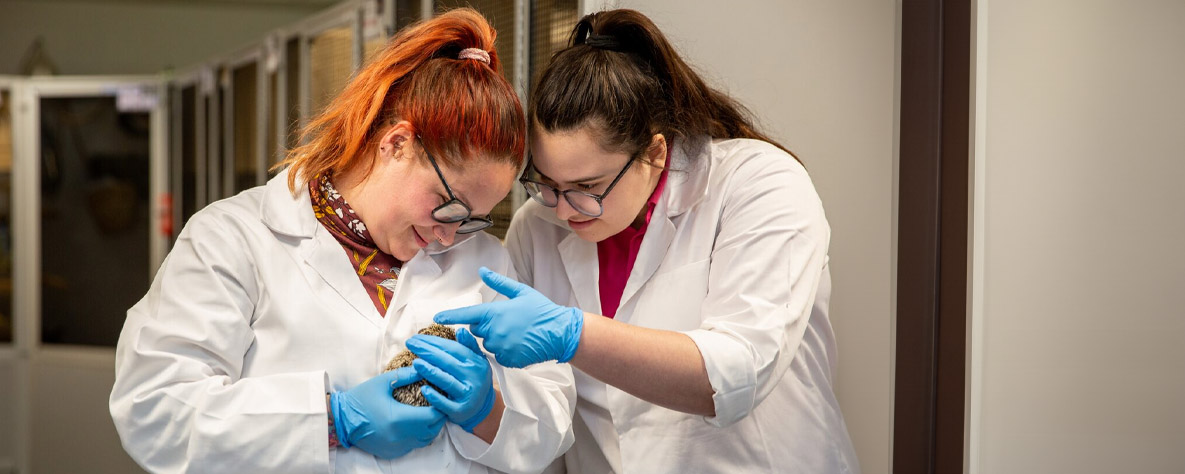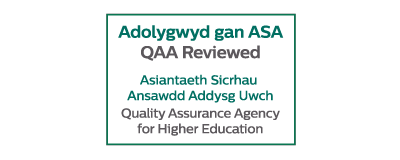Foundation Degree Animal Health and Welfare

Key Information
Subject Area
Animal Care, Equine and Land-based
Full Time
Location
Usk Campus
Start Date
10 September 2025
Entry Requirements
You would usually need at least one of the following:
- 48 UCAS points - UCAS tariff calculator https://www.ucas.com/ucas/tariff-calculator
- Access to HE where you have achieved a Pass Diploma with 45 Passes
Plus: GCSE passes in 5 subjects at grade C or above to include Maths and English Language (or equivalent).
Please note that if you do not meet the grade criteria, then age and experience may be able to be taken into consideration.
In a nutshell
This course will give you the practical skills, specialist knowledge and work experience to help you start or develop your career in the Animal Management industry.
This course is for you if...
... You’re already working in the industry and want to take the next step in your career
... Or you are just beginning your professional life
... You want a blend of academic study, work-based learning and skill development
What will I be doing?
You will study many aspects of animal care and welfare, from anatomy, physiology and animal behaviour, to veterinary medicine and animal nutrition. All of your knowledge will be put into practice in the work placement module, where you'll produce a portfolio of professional work to demonstrate the experience you've gained.
The course is very practical, so you get lots of first-hand experience to compliment and reinforce your classroom lectures. Experts from the field of animal care deliver guest lectures, and you'll take part in educational visits, discussion forums and group work.
Modules include:
Year 1
- Anatomy and Physiology
- Basics of Animal Behaviour
- Animal Nutrition
- Animal Husbandry
- Land Based Study Skills
- Principles of Veterinary Science 1
Year 2
- Breeding and Genetics
- Work Placement Portfolio
- Work Based Project Skills
- Conservation Biology
- Animal Welfare
- Principles of Veterinary Science 2
Assessment will be varied and ongoing through the two year course to include group discussion and critiques, investigation projects, portfolios of work, presentations, reports and exams.
You’ll achieve a Foundation Degree which is equivalent to the first two years of study on a degree programme (Level 4 and Level 5). This is awarded by University of South Wales, the accrediting university.
What is expected of me?
You would usually need at least one of the following:
- 48 UCAS points - UCAS tariff calculator https://www.ucas.com/ucas/tariff-calculator
- Access to HE where you have achieved a Pass Diploma with 45 Passes
Plus: GCSE passes in 5 subjects at grade C or above to include Maths and English Language (or equivalent).
The usual timetable for this course runs over two full days per week and students will be expected to attend all sessions. There will be an expectation for students to complete at least 20 hours per week of independent study and research. In addition to this there will be a work placement module of which the student will be required to source their own placement(s) to cover the required 200 hours; tutor guidance will be available if necessary.
Please note that if you do not meet the grade criteria, then age and experience may be able to be taken into consideration.
What comes next?
After this course, you’ll have the right amount of specialist knowledge and practical skills to work in the land-based industry. If you want to do more academic study, you could choose to top up this Foundation Degree to a full BSc (Hons) Animal Health & Welfare, by completing the additional one year top up course. Alternatively, you can transfer onto a degree course in a related subject offered by other universities, subject to you meeting their specified entry requirements.
Additional information
PPE (Personal Protective Equipment) will be required for the practical aspects of the programme. This will include a white laboratory coat, a dissection kit and steel toe capped wellington boots. You'll need to purchase this equipment at the beginning of the programme.
An up to date tetanus injection is recommended before starting on the course.
Terms and Conditions
Find out more
Have any questions or are not sure if this is the right course for you?
Contact our Student Recruitment team









